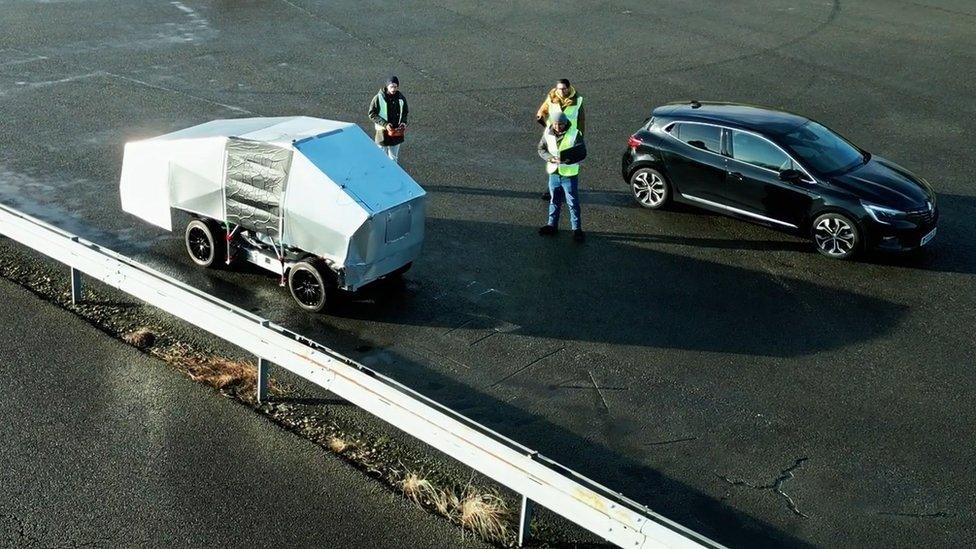NI potholes: Number of complaints doubles to more than 25,000
- Published
- comments
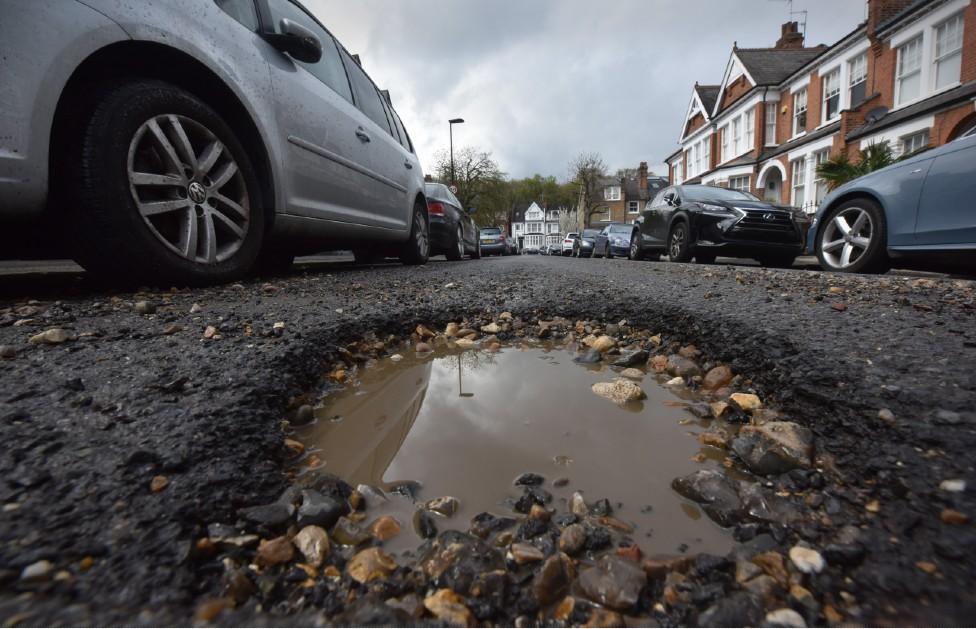
The number of complaints about potholes on Northern Ireland's roads more than doubled in 2023, figures show.
Government statistics show the Department for Infrastructure (DfI) was contacted about potholes more than 25,000 times last year.
That's higher than in any other year since DfI launched an online reporting service in 2015.
DfI said it is struggling to fix many roads because of a budget shortfall.
It added that it can only currently repair the "highest priority defects".
The figures show the department was contacted a total of 25,067 times, external last year by the public about potholes - more than double the previous year's total of 11,608.
"Unfortunately some defects will not be repaired until they meet the required intervention level," a DfI spokesman said.
Potholes are formed when water runs through cracks in road surfaces, freezes and expands, causing the surface to rupture and creating a void which later caves in under the weight of vehicles.

'Risk of losing control'
Brendan McGinn is principal of St Mary's College in Londonderry.
So bad are the potholes outside the school, he said, that he has had to warn every parent.
"We text all the parents about the potholes - for what it is worth," he told BBC Radio Foyle.
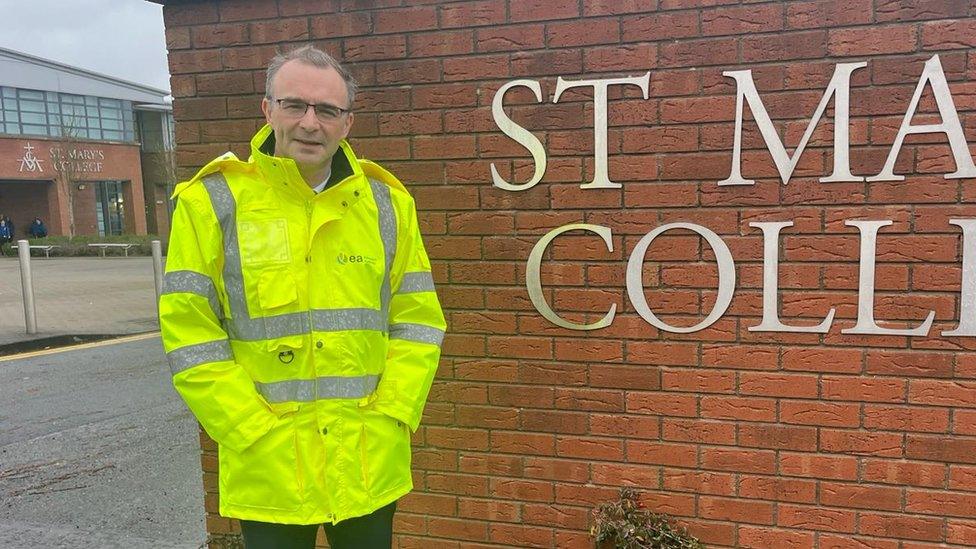
St Mary's College principal Brendan McGinn said he worries about a car losing control outside his school
"But I can see regularly parents coming in - particularly in the dark in the morning time - they don't see the pothole and before they know it they can't do anything about it.
"You are talking about an area with a high volume of parents and pupils. If there is even a slight risk of a car losing control because of a burst tyre I would be concerned, like many parents and staff," he said.

Foyle SDLP assembly members Mark H Durkan said Northern Ireland's roads are in a "shocking state".
"Sadly, it hasn't got any better, its actually getting worse and more widespread," Mr Durkan, the SDLP's infrastructure spokesperson said.
He said he has been "absolutely inundated with complaints and concerns about potholes of late".
"There's a risk of damage and a real risk of danger as people unexpectedly go into a pothole and bounce out of it or as people swerve to avoid potholes, potentially into oncoming traffic," he said.
The DfI said after the wettest October in more than 150 years caused '"severe damage to the roads", it was progressing with repairs as "quickly as possible within existing resources".
Weather, the DfI said, is one factor that can increase the number of potholes, and subsequently the number of reports the department receives.
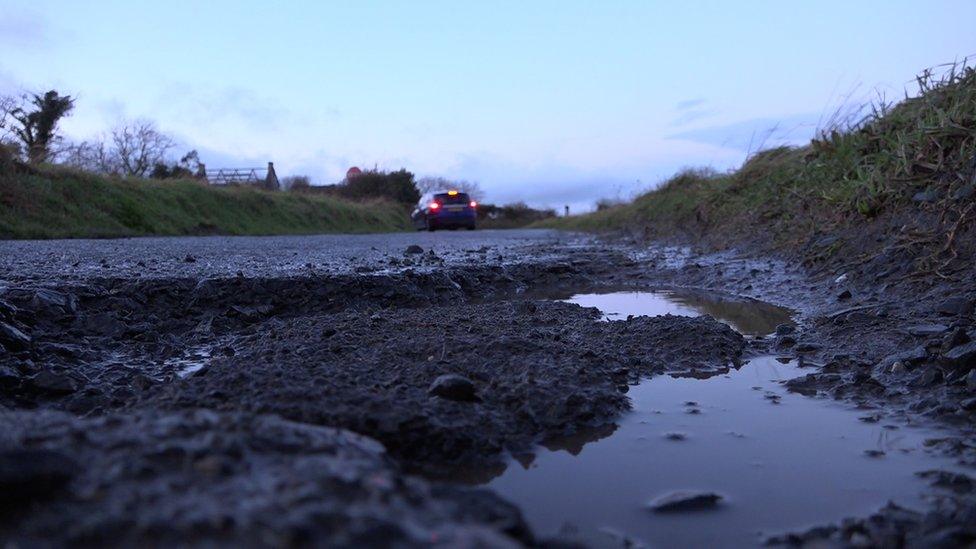
An exceptionally wet October may have made the pothole problem even worse, the department said
There have been almost 120,000 complaints and enquiries made to DfI since 2015 when the department launched its online pothole reporting service , external.
The figures, the department added, "are for the number of pothole/defects reported, so in theory one pothole or defect can be reported several times, particularly in densely populated areas or where there are higher levels of traffic".
It said the winter of 2017/18, which was "particularly harsh" weather wise, accelerated the deterioration of the road network.
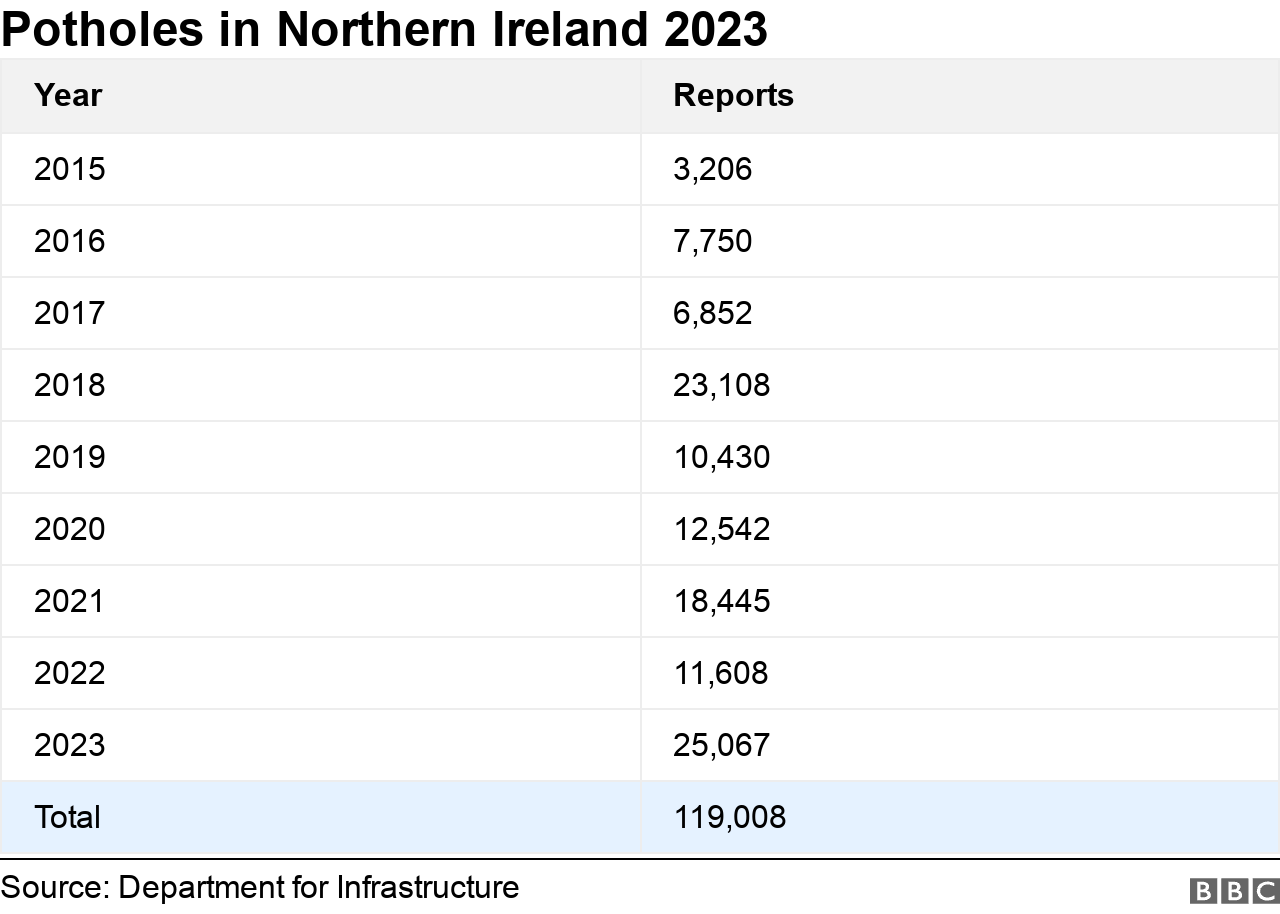
Mr Durkan said DfI should not be operating a "penny-wise, pound-foolish approach" despite budget constraints.
"Staff can only repair those which meet the requisite depth not the others, leaving repairs exposed and a near guarantee that overstretched, underpaid workers will be back out again and again to repair the same areas."
He added: "DfI have nowhere near enough money- their routine maintenance budget hasn't increased in over five years".
The department said what the public are now seeing is "the difference in quality that should be expected when such a significant shortfall in maintenance spending occurs".
Many roads service workers are currently involved in an ongoing industrial dispute over public sector pay.
Unite the Union's Gareth Scott said low pay has led to a "staffing crisis" in the department.
That, Mr Scott added, "leaves fewer workers to maintain roads which are being exposed to more extreme weather events and heavier and heavier vehicles.
"The current situation is entirely unsustainable," he added.
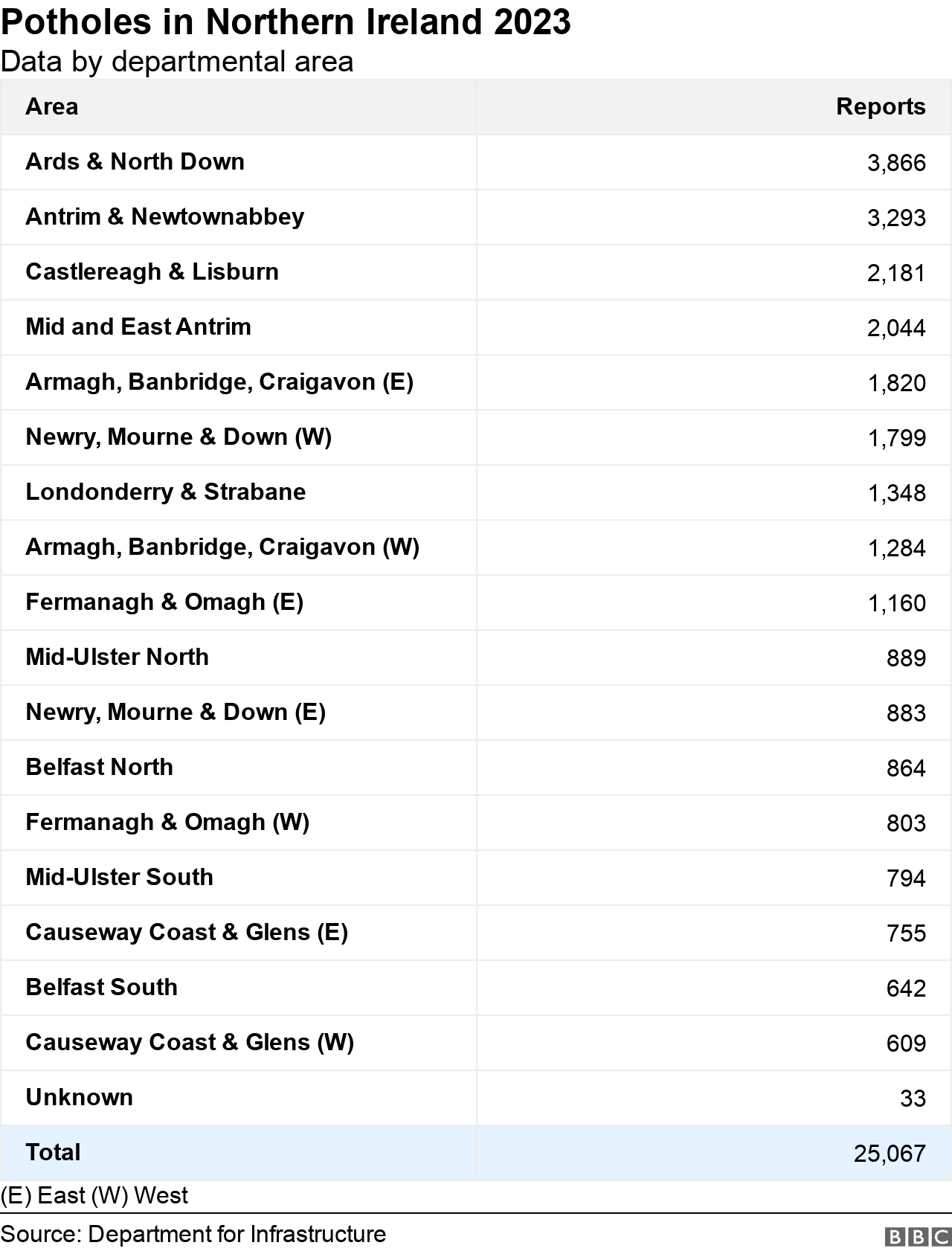
Motoring journalist Maria McCarthy told BBC Radio Foyle's North West Today programme motorists shouldn't underestimate what a really bad pothole can do to a car.
"Obviously there is tyre damage - you can have tyre damage, windscreen damage, where chips come up from the road, and also it can also throw the steering off," she said.
"After you have hit a pothole it is very important to watch how the car is in the following days because if the steering is off, that's very dangerous for the driver and all the occupants of the car".
Related topics
- Published15 January 2024
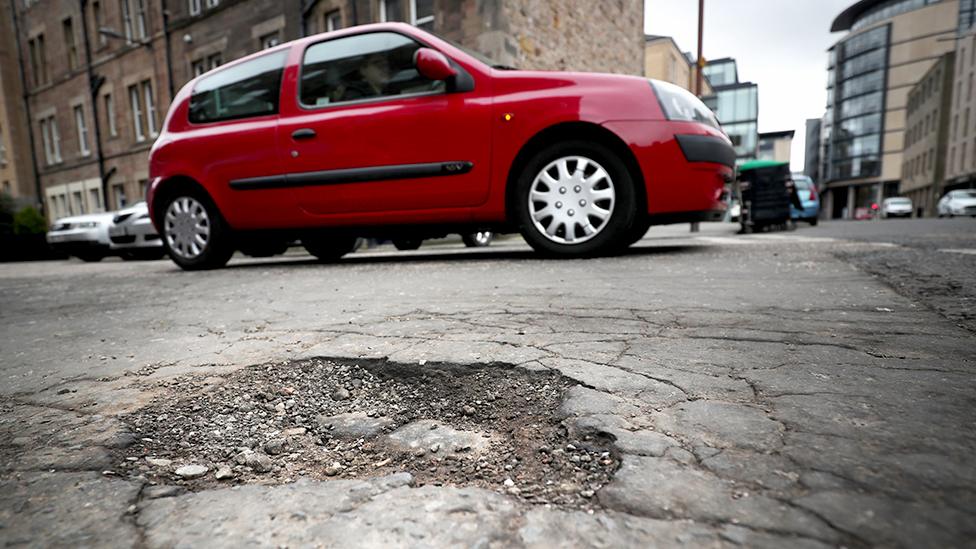
- Published15 January 2024
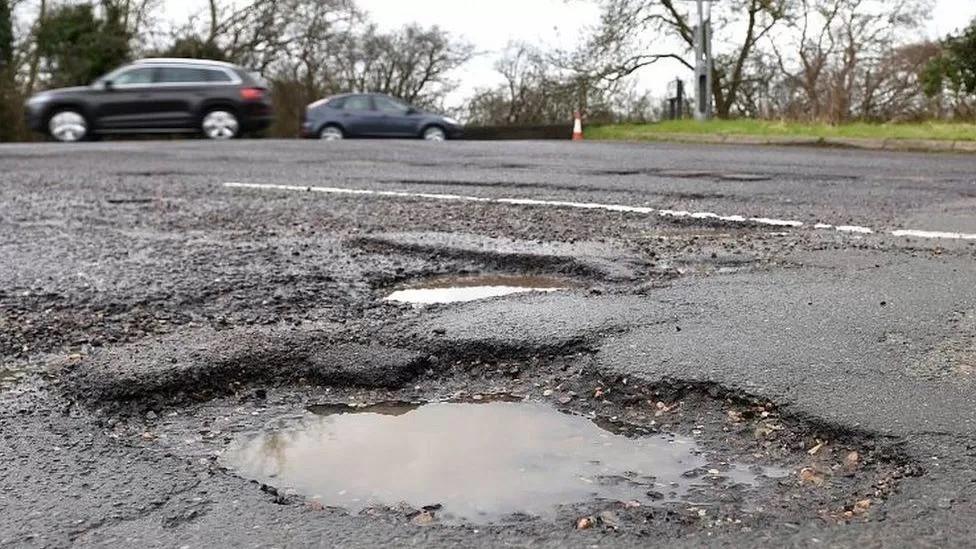
- Published3 July 2023
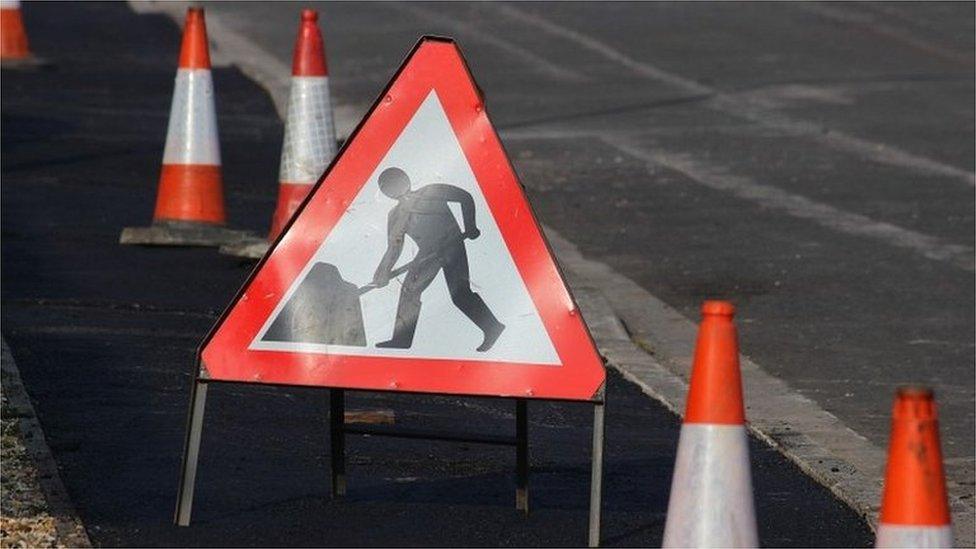
- Published10 January 2024
